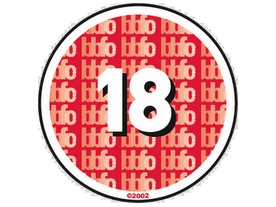BBFC hits back at UK games industry
Ratings system is fully future-proof, claims BBFC's David Cooke

The British Board of Film Classification's director, David Cooke, has hit back at criticisms from games publishers over the recent Byron Report proposals to expand the BBFC's role in rating videogames.
Cooke responded to criticisms from EA and Microsoft, issuing a statement today which reads:
"We are disappointed and concerned about attempts by one or two video games publishers to pre-empt, through recent press statements, the forthcoming public consultation on video games classification. Their statements are misleading in several respects.
"The BBFC's current average turnaround time for games classifications is eight calendar days. In terms of international comparisons, this is notably quick. There is no reason why the increased role for the BBFC envisaged by Dr Byron should lead to delays.
"BBFC classifications are already cheaper for many games than those under the Pan European Games Information System (PEGI). Because the BBFC deals primarily with the most problematic games, BBFC costs will fall if, as Dr Byron recommended, we take on all games, physical and online, rated '12' and above."
The BBFC can cope
Cooke went on to state that claims that the BBFC would not be able to cope with an increased workload rating games were "absurd", adding that: "The BBFC is a larger and better resourced organisation than PEGI, and is well used to gearing up, and to providing fast-track services where appropriate."
Get daily insight, inspiration and deals in your inbox
Sign up for breaking news, reviews, opinion, top tech deals, and more.
ELSPA's major criticism since the Byron Report was published back in March has been that the BBFC system is not 'future proof' and will not be able to cope with the shift to online gaming and online distribution of games over the next few years.
"We reject any suggestions that the Byron proposals for dealing with online games are not future-proof," states Cooke.
"The BBFC has made clear that we are prepared to work through PEGI Online, which already recognises BBFC symbols. But, with online games, the real need is not a pan-national grouping of markets, but rather soundly based and independent initial classification, full information provision, and responsible self-regulation of online game-play backed by properly resourced independent monitoring and complaints mechanisms."
Games industry fear
Cooke wants to reassure games publishers and developers alike, claiming: "The games industry really does have nothing to fear from a set of proposals which would provide more robust, and fully independent decisions, and detailed content advice for the British public, and especially parents.
"The Byron proposals, far from envisaging the collapse of PEGI, specifically provide for a continuing PEGI presence in UK games classification. They also provide significant opportunities to reduce duplication of effort and costs. And they would make wider use of a system, the BBFC's, which British parents recognise, trust and have confidence in."
